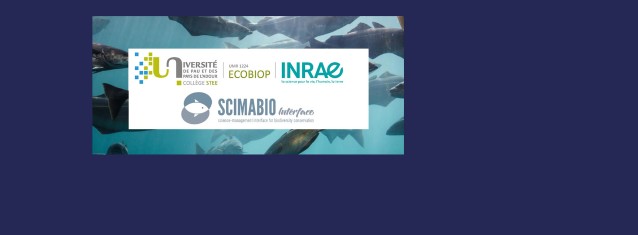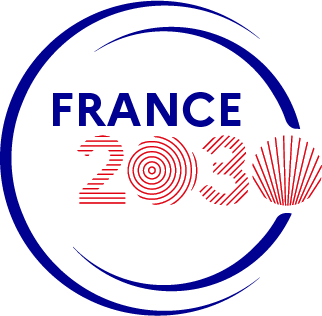
INRAE, the Université of Pau and Pays de l’Adour, and SCIMABIO Interface have joined forces to create an associated partnership laboratory. Named MODMAF for MOvements and Demography for the MAnagement of Fish, the main mission of this laboratory is to transfer scientific knowledge and skills in aquatic ecology.
It will focus on the development and application of statistical models and tools for the study of fish demography and movements.
This is a first within the framework of the “agreement on objectives and resources” signed in 2022 between INRAE and the university in order to meet the multiple challenges of resilience and adaptation of aquatic ecosystems to global change.
In November 2023, INRAE Nouvelle-Aquitaine Bordeaux, the Université of Pau et des pays de l'Adour, and SCIMABIO Interface, an expert in the science-management interface, bring years of collaboration to fruition with the creation of an associated partnership laboratory (LPA). This arrangement is embodied in a shared laboratory agreement based on a 5-year research program.
The agreement signed for the creation of LPA MODMAF sets several objectives:
- Bringing together partners in the program to define common scientific and technological objectives, and share scientific approaches and approaches for mutual enrichment;
- Capitalizing on the complementary nature of the various partners, while respecting each partner's strategic plans and projects;
- Optimizing the use of skills and material resources by encouraging the pooling and sharing of infrastructure and equipment between partners;
- Responding jointly to calls for proposals and setting up projects that enable the research program to be carried out.
This type of partnership offers a number of advantages, such as the emergence of new research topics and possible access to certain recent equipment or technologies, skills or data available at each of the partners.
A strategy of knowledge transfer and development of public-private partnerships
The transfer of scientific knowledge to society is part of the INRAE 2030 national strategy, with the ambition of responding to environmental challenges, managing the associated risks and placing science, innovation and expertise at the heart of relations with society to strengthen the Institute's culture of impact.
UPPA also places public-private partnerships at the heart of its development strategy, and these have been intensified within the framework of the "Solutions for Energy and the Environment" I-SITE national label, encouraging the creation of structured, long-term collaborations. This particular partnership is also in line with the university's scientific signature within the interdisciplinary mission "Adapting coastal, forest and mountain ecosystems to make them more resilient".
SCIMABIO Interface, with its ability to play a triple role of upstream problem identification, R&D activity and operational transfer of new solutions, was the ideal independent partner to co-build this first joint laboratory with the INRAE Nouvelle-Aquitaine Bordeaux center.
